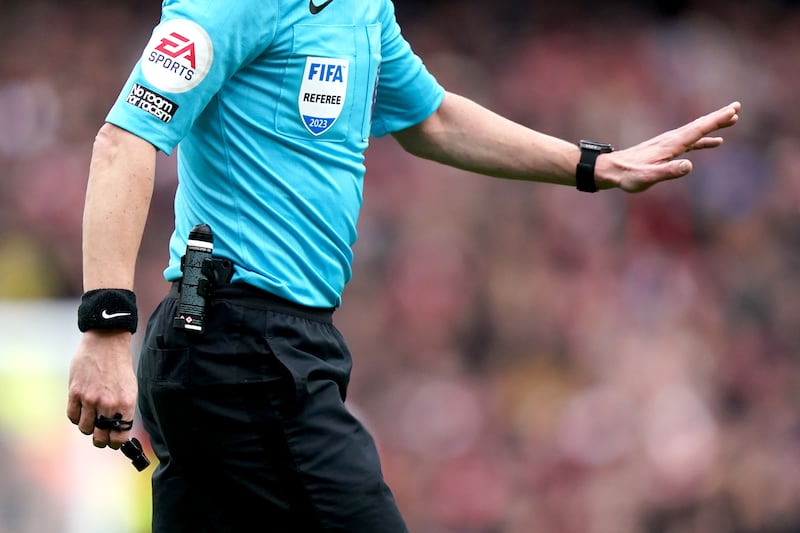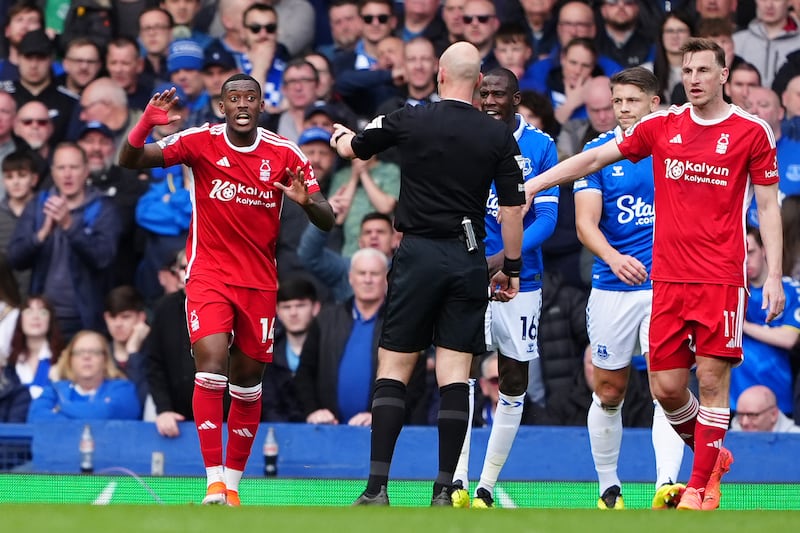The decision by English officials Anthony Taylor and Stuart Attwell to disallow a Netherlands goal against France at Euro 2024 was “totally correct”, according to UEFA referees’ chief Roberto Rosetti.
The pair received some criticism from television pundits in the UK and on social media for ruling out the goal after Attwell agreed with Taylor that Netherlands full-back Denzel Dumfries was impeding France goalkeeper Mike Maignan while stood in an offside position as Xavi Simons’ shot flew in.
There was also criticism for how long it took the officials to reach the decision, and while Rosetti admitted the duration of the review was an “element of improvement” he felt the right outcome was reached in a complex situation.

“The UEFA referee committee totally supported the decision,” the Italian said.
“We think that the decision is right and we are also happy about the process. There are always elements for improvement. In this situation, the element of improvement is the duration of this review. For sure the duration can be less, we can decrease the duration of the review (but) I want to tell you that it’s not easy.
“In this situation the VAR checked two possible offsides, he had to check the possible impact of the attacker on the goalkeeper and a previous contact between two other players. Then we can add that we are at the Euro, the pressure is the pressure, and of course we always support accuracy. At the end the decision is totally correct.”
Attwell also received effusive praise from Rosetti over his concise communication with the other English referee at the finals, Michael Oliver, who he advised to disallow a Croatia goal against Spain for encroachment after a penalty.
“When Stuart is speaking it is like the book of VAR in modern football and VAR application,” Rosetti said.
“Everything was clear.”
Attwell was at the centre of a row involving Nottingham Forest last season, who issued an extraordinary social media post in the wake of a defeat at Everton saying they had warned Professional Game Match Officials Limited (PGMOL) that Attwell was a supporter of their relegation rivals Luton, but PGMOL had not changed the appointment.

Sources close to PGMOL have always insisted the professionalism and integrity of its officials is beyond reproach but chief refereeing officer Howard Webb did later say he felt Attwell should have sent Taylor to the pitchside monitor to review one of three Forest penalty claims in the match.
The average duration of a VAR check at this summer’s Euros so far has been 51 seconds, compared to 56 seconds in last season’s Champions League. The average when pitchside reviews were included was one minute and 36 seconds, UEFA said.
Decisions involving semi-automated offside technology took 46 seconds on average, compared to 58 seconds in last season’s Champions League.
Effective playing time is slightly down at this Euros compared to the finals played in 2021 – 59 minutes and 10 seconds compared to 60 minutes and 30 seconds.

There have been 166 yellow cards issued in this tournament compared to 98 at the last finals. Rosetti highlighted a crackdown on tactical fouls – saying 35 such infringements had been sanctioned with a booking in Germany compared to just eight by this point in the last finals.
Rosetti also felt the initiative to encourage captain-only dialogue with referees had been “extremely positive” and said “important national associations” were keen to follow the same approach in their competitions in the future.
Yellow cards are issued where a player other than the captain approaches or shows dissent to the official.







